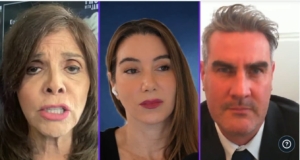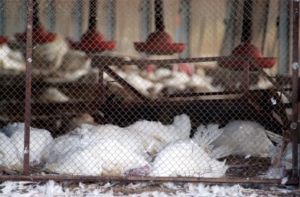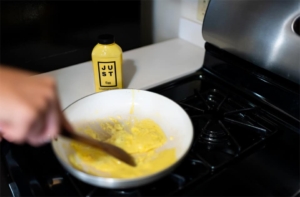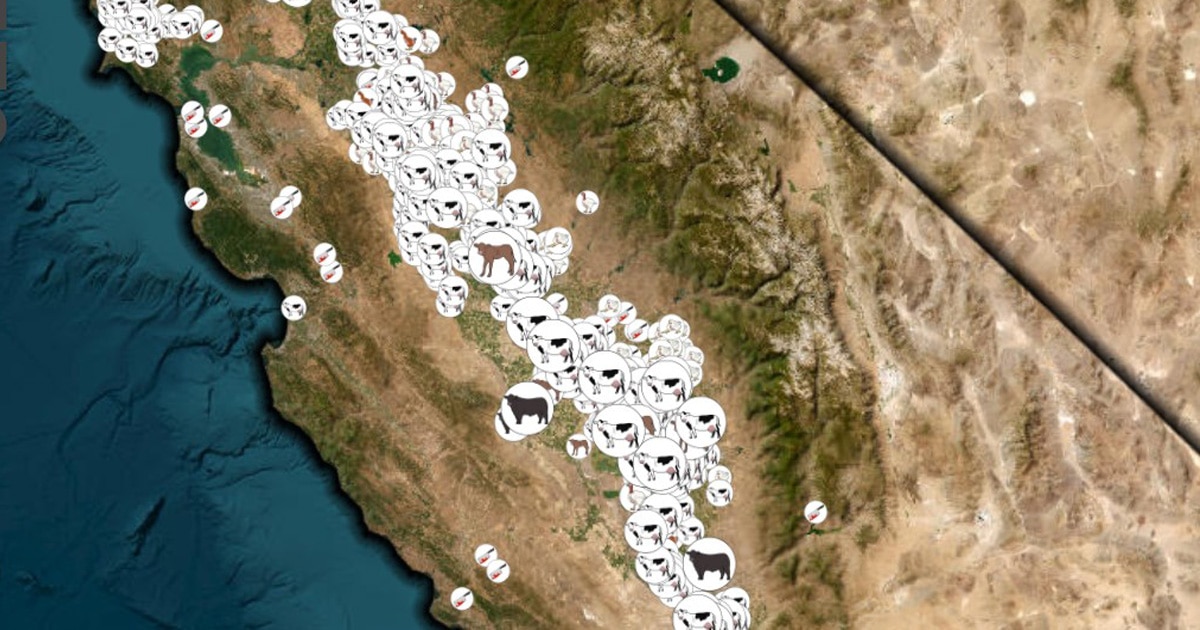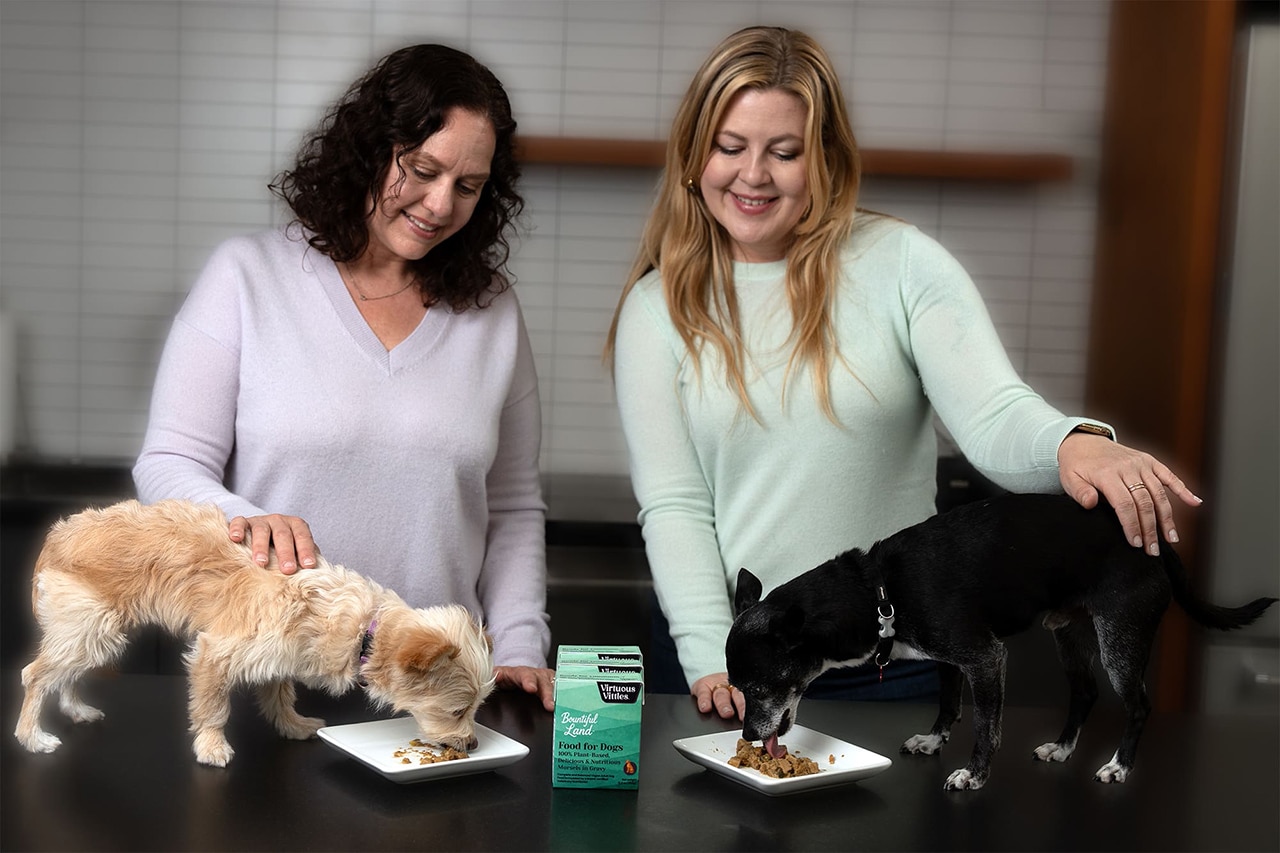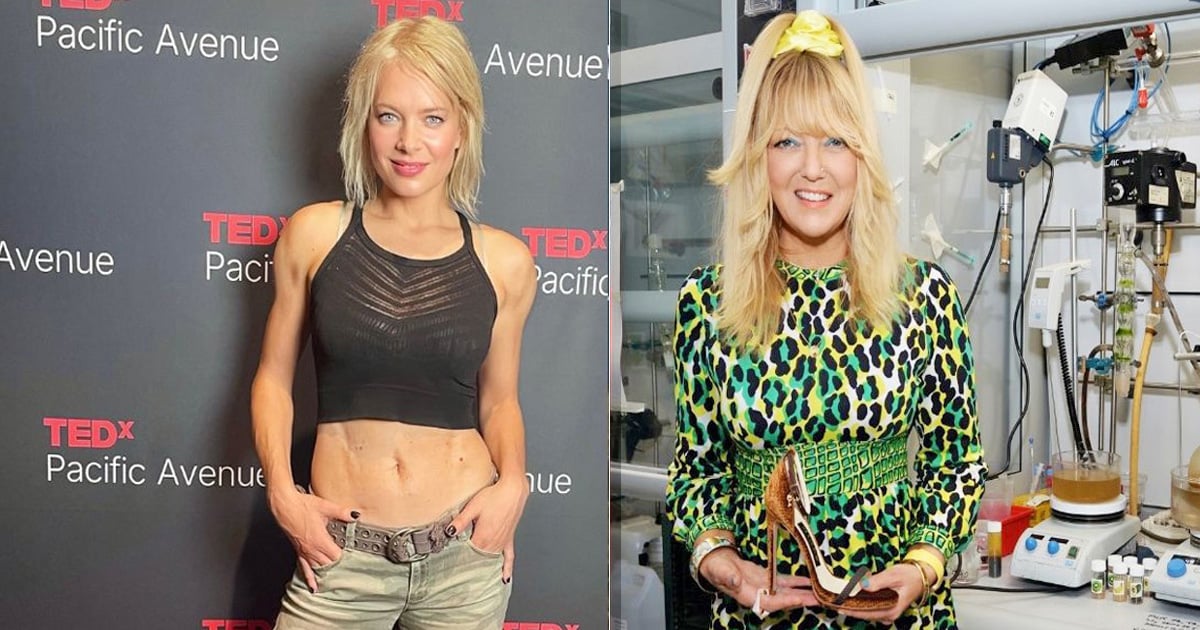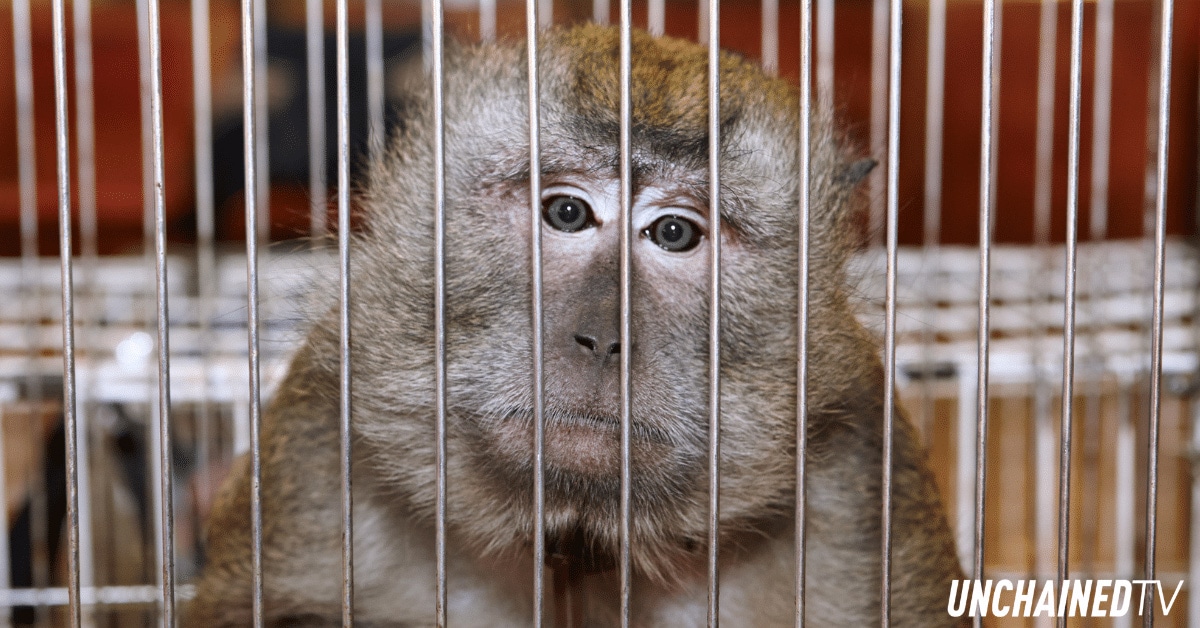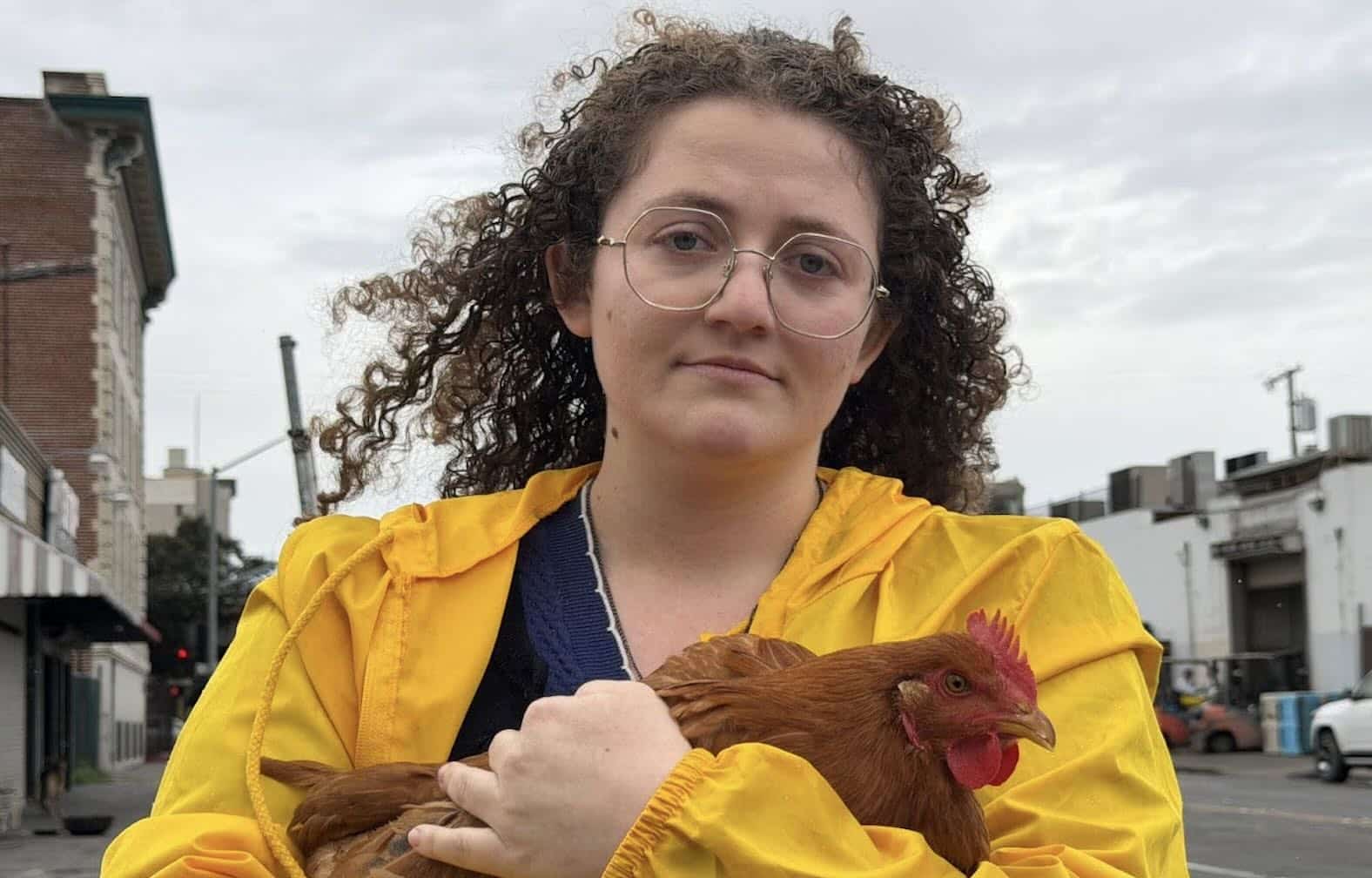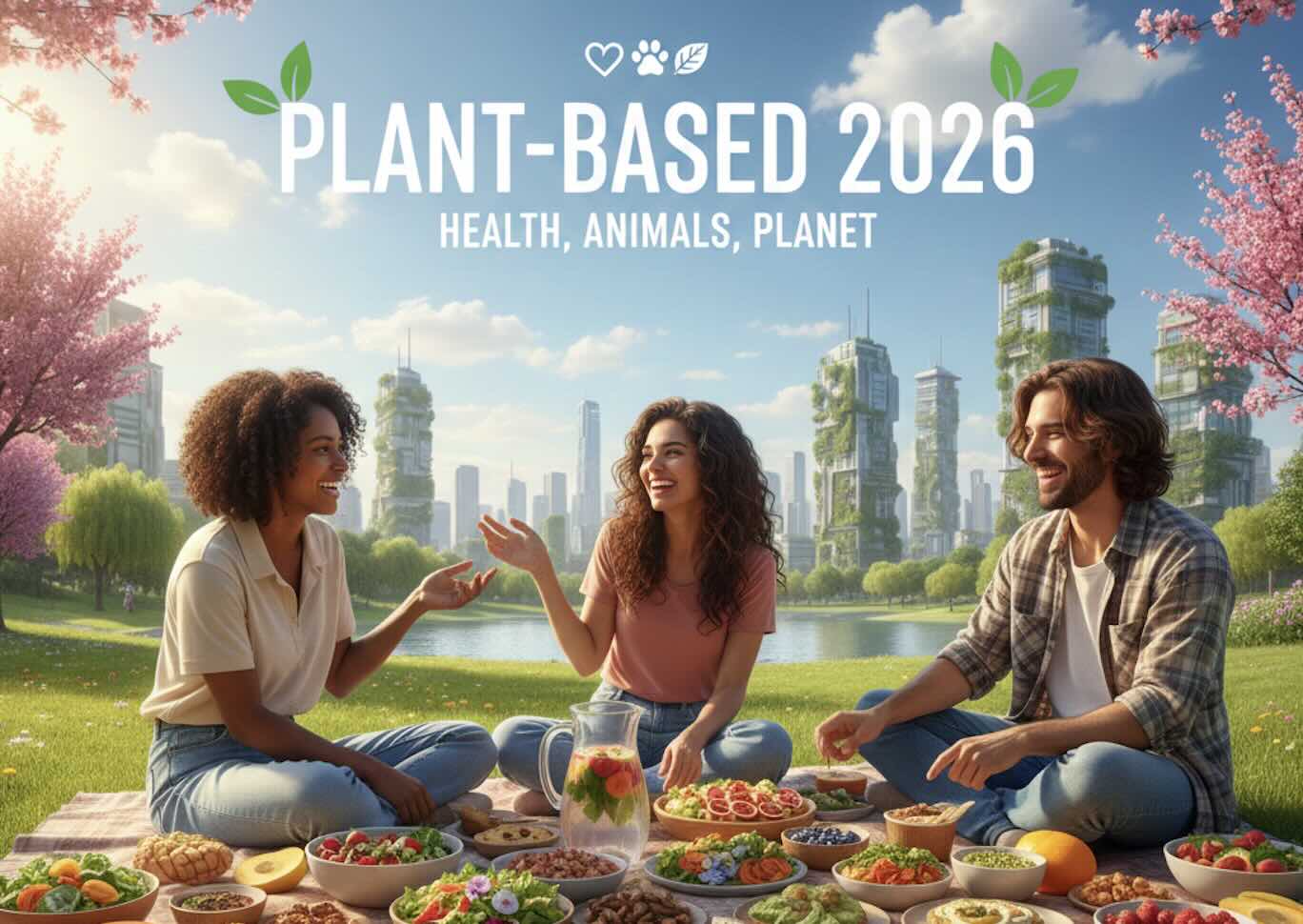[Speaker 1]
We’ve got breaking news to tell you about, and I have to tell you, this is big breaking news. Welcome to The Truth Files. With me, your host, Jane Velez-Mitchell.
We’re talking about the bird flu crisis. And I can tell you that it’s making headlines. In fact, here are the headlines.
Newsweek Magazine, the largest egg producer in the Southwest, partially shutting down. What to know? Avian flu forces Hickman’s Family Farms to pause majority of production for two years.
And it’s also getting some mainstream television news. Video obtained by animal advocacy group, Animal Outlook, shows what they say is a depopulation operation at Hickman Family Farms in Tonopah, Arizona. We filmed trucks coming and going with piles of dead birds and litter packed into the back of them.
We filmed wheel loaders coming out of the barns and tipping the dead birds into these trucks. This is the latest mass culling effort at Hickman’s. All right, so as those layoffs are underway, and the family is, and we’re gonna talk to you about what the family has to say, saying that this is a tragedy, we have a team here offering an alternative.
And we’re gonna start with Ben Williamson, the executive director of Animal Outlook, who is now going to publicly make a plea to this company to use this tragedy as an opportunity for change. Take it away, Ben. Well, I mean, Hickman’s, they describe themselves as a family farm, but they’re anything but.
They are a massive egg producer in the Southeast. They’re actually the Southeast’s largest egg producer. During this crisis, the bird flu crisis, they’ve had to depopulate, which is a sanitized word of saying kill, over 6 million birds because of an outbreak of bird flu at their various facilities.
And this is costing the taxpayer nearly $100 million in compensation payments made to this industrial producer. So it’s a form of corporate welfarism. And we just say, I mean, obviously the Hickman’s has said that they’re devastated by what they’ve done and it’s a tragic loss.
But if they’re so devastated by it, then we encourage them to get out of the business of egg farming altogether. You know, this doesn’t need to happen. People can eat plant-based egg substitutes.
There’s no reason for them to continue in this business. If it’s so devastating, then maybe it’s time that they get out of the business because we’ve seen that bird flu is here to stay. It’s something that’s happening again and again.
And it doesn’t need to. We can have perfectly healthy long lives on a vegan diet. And you are looking at, well, why don’t you describe what we’re seeing here because this is footage that you obtained, Ben.
Yeah, so we sent our investigator to Arizona. We found out the facility where there’d been an outbreak. The USDA has been pretty good about releasing the location of various bird flu outbreaks, obviously in an effort to control the pandemic.
But we had to do some digging. So we found out the facility was in Tonopah, Arizona, that it belonged to Hickman Family Farms. And our investigator filmed from the side of the road using long lens cameras.
So everything we obtained was legally shot. That’s the way Animal Outlook operates. And what we believed we were seeing and what has actually been confirmed is that thousands of birds, actually 2.3 million birds in total at this one facility, these 14 massive barns, you can see the size of them, being wheeled out of the facility, having been killed by bird flu and by a depopulation process. And then we know for a fact that they were buried on site, almost all of them, if not all of them, because the following days after our news footage came out, other news members of the media went to the facility and flew their own drones over and spoke to the farm and confirmed indeed that these animals were all killed and were all buried at the facility. I just wanna mention that I did reach out by phone as well, attempted by phone, as well as by email, listing out all your allegations, your complaints, and your call for this company to transition to plant-based eggs, to transition out of animal agriculture. I did not hear back.
I did not get an email back. I checked literally two minutes before this broadcast started but we invite the Hickmans on at any time. We would love to dialogue with you.
I do wanna put up a statement that they publicly issued and asked Dr. Crystal Heath of our honor, a well-known veterinarian who is leading the fight against mass depopulation to comment on their comment. So essentially Hickman says the bird flu has resulted in the deaths of 95% of our hens here in Arizona, approximately 6 million birds. We believe you saw some of them just moments ago on that very upsetting video provided by Animal Outlook.
This devastating turn of events means the loss of life for the hens, the loss of jobs for hundreds of employees and the loss of an invaluable food resource both locally and far beyond. They go on to essentially say that Europeans have been vaccinating their flocks for a couple of years and gaining the upper hand and saying that that should happen here in the United States. What is your response to their response to this crisis?
Well, we’ve seen with Hickmans, there’s been repeated problems. There’s been fires at their facilities. We’re just in this ever escalating arms race against nature.
And this vaccination would just be another weapon in this arms race against nature. It would be like this short-term fix for this inherent problem with animal-based methods of protein production. And they would be much wiser as business people to transition to animal-free methods of protein production that don’t require all of these vaccinations.
And viruses mutate. So the vaccine will constantly need to be updated to compete with these viruses of pandemic potential. And it just takes one really virulent strain of virus to wipe out all of these birds and potentially infect human beings which we are worried about.
There were more than 800 people involved in the depopulation who are now being monitored for their exposure to avian influenza. One person according to our records reported symptoms but we don’t know the results of that. And now it’s concerning that the CDC has ended its emergency response to avian influenza at a time when we’re just not testing enough as it is.
Again, we invite the company on to respond to anything at any time. Dr. Crystal Heath, you obtained this footage and this is a different state, a somewhat different issue although it’s related. These are dead cows, okay?
This has nothing to do with Hickman’s. I wanna make that very, very clear right now. We’re talking about the bird flu in general which obviously does not know state lines.
It doesn’t know county lines. This I believe is happening in California where you discovered cows that had died of bird flu. Can you put this in context in terms of the bigger picture here in terms of what’s at risk with bird flu?
Yeah, we’re just not being told enough about this virus. We are seeing from my investigations a lot of these new bird flu outbreaks are happening at facilities that are right next to dairy facilities. And we are worried, many experts like myself are worried that these dairy facilities that are infected with H5N1 are spreading this virus to poultry facilities.
We know through genotyping that these poultry outbreaks do have genomic similarities to the dairy outbreaks. We know that they get them from these dairy facilities. And I’m worried that dust and debris and other things that are infected with H5N1 are then sucked into these poultry facilities through their ventilation systems.
So unless we do something to stop that, we’re going to continue to see these outbreaks of avian influenza. Now, isn’t it true that when you got that footage, and by the way, that’s in California, correct? Yes.
Yeah, so again, nothing to do with Hickman’s. Hickman’s is in Arizona. But when you went out on your own to get that footage, instead of being applauded and instead of local news operations saying, hey, let’s run this, let’s show this crisis, industry and certain aspects of even the veterinarian institutions turned against you and wanted to punish you for showing the truth.
Yeah, a website with more than a million followers was calling for my license to be revoked. News outlets, some news outlets did publish the footage, but many did not because they viewed it as too gruesome for their viewers. So people just aren’t being told what’s really going on.
And if you’re buying these products, shouldn’t you see what’s happening? Shouldn’t you see the grim reality of this and how it does pose a threat to our public health, our food security? I think the public deserves to know, and they should know, and these products should be accurately labeled with the risk that this method of protein production poses to our public health and our food security.
Now, again, I reached out to Hickman Family Farms and we invite them on any time. And given your news release, I asked them what depopulation methods they use. They have said flat out that they had to kill 6 million birds.
There’s no nice way really to kill 6 million birds. While we can’t confirm that this very controversial method of depopulation was used, I know that you, Dr. Crystal Heath, have led a crusade against the most common depopulation method, which is VSD Plus. More than 2,000 veterinarians have signed saying, please do not use this method.
What is that method? This method, Ventilation Shutdown Plus, involves sealing up the buildings, pumping in heat and sometimes steam, and waiting for the animals inside to die after many hours. It’s obviously extremely cruel, and it’s done because it is the most economic way to do it.
But there are, of course, less cruel methods like high expansion nitrogen foam that could be used instead. And it’s really disturbing the response by various veterinary organizations who have attacked me, barred me from going to veterinary conferences and participating because of my stance against VSD. And they have even released the new draft of the guidelines for depopulation, which leaves Ventilation Shutdown Plus as a Tier 2 method for poultry birds and a Tier 3 method for pigs.
So still allowing this method to be used when there are less cruel methods that we should be incentivizing these companies to be using instead of the most cruel method, which is VSD Plus. Well, and of course, when you say Animal Outlook will help this company transition, transition to what? Well, Just Egg is a vegan, a plant-based egg alternative that looks like eggs and tastes like eggs.
And I have to tell you that I was at Natural Products Expo West recently in Anaheim, California, which is the largest natural products convention in the world. It is absolutely massive. And the Just Egg booth was one of the most popular.
Let’s see if we can play a clip of that. It looks like eggs. It tastes like chicken eggs, but it has the added advantage of being 100% cholesterol-free and available in this time of tremendous egg shortage.
We launched our latest version of Just Egg. It’s called V6, and it is an improved texture, flavor. It’s the most egg-like Just Egg we’ve ever made.
And our chef, Chris Jones, is making omelets behind me. He’s a Michelin star chef. We are in a world in which there are no chicken eggs left, so it’s good for the plant-based egg.
Josh Tetrick is the creator of Just Egg. He’s on a mission to make his product a mealtime staple as more and more people seek ethical and sustainable alternatives to animal products. The rising threat of bird flu is making chicken eggs scarce, and when you can even find them, a lot more expensive.
That’s also causing consumers to switch to Just Egg in droves. So we’re growing five times faster than we were last year.
[Speaker 2]
We’re growing five times faster than chicken eggs.
[Speaker 1]
And when people come and try, they realize it tastes as good or better than a chicken egg, and we’re converting lots of people at the expo. So there you go. I want to get your reaction, everybody, to those developments.
I mean, I was there. I could testify in a court of law. People were swarming this booth.
How would, let’s say, Hitmans make the transition, Ben? Well, you know, firstly, I would have a conversation with Josh Tetrick. I’ve met Josh.
He’s a wonderful person, a great humanitarian, and a fantastic innovator. So, you know, there would be a conversation. They’d be shut down, and they’d…
We know Just Egg wants to scale. We know that there’s a lot of potential for this. It’s just one company saturating the plant-based egg market at the moment, and there’s a lot of opportunity.
So, at first, a conversation would happen, but, you know, I think, first things first, Hickman needs to make a decision not to reopen in two years’ time and to say that it’s getting out of the egg game because the devastation that they’ve already suffered is due to happen again and again. If they’re really upset by the loss, then they wouldn’t want to be in that business. Well, you said you’d be willing to help them.
So, give us a sense of how you would help because, again, we did reach out to them. We invite them on any time. This is a moment.
I mean, let’s say, for example, just to let our imaginations go wild, that they watch this. I hope they do. I hope they do.
I mean, you’re saying it’s a win-win, so you’re offering them something that ultimately you’re saying would be better for them. If a company wants to make money and you had to kill six million birds, is that time to do a self-assessment re-evaluation? I would say yes.
And I want to point out that it’s not just this industry, the chicken industry. Extraordinary development. This week, the Dallas Morning News issued an editorial telling the cattle industry to stop fighting lab-grown meat.
And they said, basically, I’ll read the bottom part, the most compelling argument for lab-grown meat is ethical. It slaughters no animals. This is the Dallas Morning News.
So, we could be at a cultural tipping point when you think of climate change, the devastating floods in Texas that left so many dead. And I know for a fact, working with Rowdy Girl Sanctuary in Texas, she had to flee, literally, with all her animals due to a flood. That’s not just something that happened, it’s never gonna happen again.
That could happen again next week. You’ve got climate change, you’ve got bird flu. It seems like Mother Nature is trying to send a message that, hey, industrialized animal production needs to transition to something else, Ben.
Yeah, absolutely. So, we recently launched our first pilot farm transition program. We worked with a former chicken farmer, a Tyson contract grower for 20 years called Bill Ferguson.
He was in the business of raising 500,000 chickens per year in his four sheds. And he just had enough. He’d seen the miserable task of picking up dead chickens, the squeeze that was being put on him, he alleges, by the integrator financially.
So, we helped him get out of that business. He’s now growing 40,000 head of lettuce per week and harvesting that and selling it to the local school district. So, you’ve got healthy school kids to boot.
So, it really is a win-win. Yeah, that’s Leah Garces’ transformation program that Mercy for Animals is bringing up. We’re doing something very similar.
And it really is a win. When you talk about the environmental savings, we recently calculated the environmental savings in terms of about nine hectares of land that’s no longer being used for growing feed for those chickens. Instead, we’re just hydroponics, growing hydroponically the lettuce in half a barn.
And it’s a win for the farmer as well because he calculates that he’s due to make more profits from half a barn of lettuce than he ever was with four barns of chickens because of that squeeze. It’s the integrators, it’s the commercial, the massive agribusinesses who are making all the money, not the farmers themselves. So, in terms of land, in terms of energy efficiency, water use is a big one.
We’re seeing environmental savings all around with this one pilot program. So, just imagine the savings if people like Hickman’s took us up on the offer. Yes, and I just interviewed Leah Garces a couple of weeks ago.
Let’s play a little bit of her transforming a former poultry operation into a plant-based business. One, two, three. Hi!
Woo! We are here for a ribbon-cutting ceremony of our very first Transformation Hub here in North Carolina. It demonstrates everything we’re moving away from and everything we’re moving toward, which is a life after factory farming.
It is so significant we’re doing this in North Carolina. North Carolina has some of the highest concentration of both pig and chicken factory farms, and it’s growing. So, we are right in the heart of that.
Showing that we are resisting factory farming and building a new, better way.
[Speaker 2]
My family is very, very excited because they used to work with me at the poultry house back then. And right now, I’ve transitioned from poultry to a greenhouse. They’re very excited and very happy for me on what I’ve been doing.
[Speaker 1]
So, that is something that I think is so amazing that can be replicated. It’s just a template. But interestingly enough, that was a chicken farm that transitioned to plant-based growing.
Microgreens, there’s mushrooms, there’s hemp, there’s a gazillion different products. I think that maybe five years ago, this would be considered pie in the sky. But with the accelerating viruses, bird flu, climate crisis, the unprecedented floods, for example, in Texas, is it time for the industry for its own survival, Dr. Heath, to consider this alternative?
Absolutely. We’re gonna continue to see infectious disease outbreaks. Now it’s H5N1, but it could be something else next time.
And these viruses are mutating rapidly. These facilities create the perfect environment for viruses of pandemic potential. You have thousands of genetically similar animals that are stressed, packed into these facilities in close contact with human beings.
It just creates the perfect environment for viruses of pandemic potential. We’re going to continue to see these outbreaks. We’re going to continue to see this escalation.
We’re seeing more and more infectious disease outbreaks. Now is the time to transition. For any business, CEOs need to be looking at this.
If you want your business to be resilient and at the forefront, you need to invest in animal-free methods of food production. And it’s disturbing that with this one big, beautiful bill that $65 billion went to prop up outdated methods of protein production, and none of that money went to support animal-free methods of protein production. Well, yes, and we even had written when we first heard that DOGE was a thing and wrote an open letter with a number of other organizations saying, if you’re gonna cut, cut the subsidies to animal agriculture that are causing so many of the environmental problems, contributing to the health crisis with cheap food that is creating the fast food.
Basically, you know, it’s an obesity pandemic. 43% of Americans are obese because of the food that they’re eating, which is subsidized by the U.S. government. Heart disease, cancer, processed meat is officially cancer-causing.
All of these problems. I recently read this 80-20 rule article about a book and it said 20% of the inputs cause 80% of the problems. That is animal agriculture to a T.
The climate crisis, the health crisis, the pollution crisis, the wildlife extinction crisis. I mean, not to mention the animal cruelty, and yet it’s a very big battle on Capitol Hill to try to get lawmakers who are supposed to work for taxpayers to take this issue and the alternative serious. I’m worried about that very much, and I know that there are dead dairy cows infected with bird flu that lay along the roadside near dairy farms.
The scavengers go after them. There’s no biosecurity or warning, and that scavenger hunt there actually spreads the disease, the bird flu, to wildlife, other birds, and humans. How can the CDFA allow this?
And are you putting industry profits over public health and animal welfare? That’s my question. So, there you have it.
Ben, if the government is not going to get on the right side of history, is all this for naught? Well, I don’t think so. I think Animal Outlook’s message is always to consumers because we have the power to change things.
We can sit down three times a week and decide whether we want to be cruel or to be kind. So, if we make vegan decisions and decision to eat more compassionately, then it doesn’t really matter what the politicians do because the power is within our control. It’s a tough ask.
It’s a lot of work, but we as each individuals can take responsibility for our local communities, our families and friends, and encourage them to make the right decisions. I assume most people watching your show, Jane, are probably already on that journey, but there’s a lot of work that can be done with the people around us to make massive changes at a local level. Yes, and of course, we always try to reach out to the general public.
So, we tell all of our plant-based supporters, share out, share out, share out, share out this video whenever you can. It’s hard because even the social media tries to block showing the graphic footage. So, you try to get the word out to people who don’t know, but then you’re blocked because, oh, it’s too graphic.
It’s a vicious cycle, Dr. Heath. Yeah, it is. It’s frustrating because my own profession, we are ones to prop this up and we give this industry the social license to operate.
Our 80-20 principle is we need to focus more energy on the veterinary profession and turn them into people who would support animal-free methods of food production. And we can also go to businesses and encourage them to remove animal ingredients from their products and replace them with animal-free ingredients. Wouldn’t it be great if every baked good out there is animal-free?
Replace eggs, replace dairy products in your products with animal-free ingredients. It’s a smart business move. It saves money.
It makes your profits higher. It’s just a habit that we have to get used to. It’s a change and it takes a lot of energy to make these changes.
We get entrenched into these outdated systems. But once we do make that change, profits go up. It’s a much more resilient business model.
So, I see there’s a lot of opportunity here. And I think now is the time with these viruses of pandemic potential becoming more and more prevalent. Now is the time for businesses to make that decision and for veterinarians to get on board and start advocating more loudly and removing this industry’s social license to operate.
Well, also, when we talk about consumers, there’s also the taxpayers. Now, Ben, in your news release, you said that the compensation for birds that are killed, 6 million birds at one company alone, okay, has jumped up to almost $17 per bird, which is a lot more than it goes for at the grocery store. That strikes me as complete, just corporate welfare.
And everything in the atmosphere today is all about cut, cut, cut, and let’s cut people who are living off the government. Well, what about corporations that are getting these huge handouts? Yeah, absolutely.
And this is something that Dr. Heath actually turned us onto when we were poking around at the Hickman’s depopulation. So you’re right in saying that the compensation payments to farmers went up from $7 per bird to $17 per bird under the current administration. And so given that Hickman’s has depopulated 6 million birds, that’s a calculation of around $95 million from taxpayers to this industrial animal agribusiness, which is a huge amount of money.
So we think some people in Doge and some people who want a smaller government would look at this and say, why are we giving these businesses all of their money? And what’s more, we know that this is a current, that bird flu is around, it’s going to stay around. We think that some of these indemnity payments should be tied to, okay, well, what measures are you actually taking to depopulate these birds more humanely, as Dr. Heath says?
What measures are you taking to make sure that we don’t just pay you out every couple of years when you have one of these outbreaks? So we think that plans need to be put in place by all of these industrial animal agribusiness to say, okay, when you do have an outbreak, because it’s not an if, it’s a when these days, when you do have an outbreak, what is your plan to depopulate the birds more humanely? What is your biosecurity measures?
And that way it takes some of the burden off the taxpayer because these, and creates some relief for the birds as well, because it will show, it will demonstrate that they have thought about it and that any compensation is tied to more humane methods. And I will just say one more thing as well. It really troubles me that in all the coverage I’ve seen, apart from on your show, Jane, and on a few other more sympathetic shows, that we rarely, rarely hear about the depopulation methods.
I know you’ve put that question to Hickman’s. Hickman’s has said, well, we do it according to USDA humane standards, but we talk about how many birds depopulated, but Hickman doesn’t want to talk about how they’ve done it. We see a lot of people talking about, well, bird flu killed these 6 million birds.
Bird flu didn’t kill these 6 million birds. These birds were killed by depopulation methods, but they don’t want to talk about that because they know that it will turn the public off. And that’s why we have to do things like putting this footage out there, putting out the fact that according to USDA’s own research, two thirds of depopulations of poultry have happened by ventilation shutdown plus, and really getting that out there because it’s not something that Hickman’s is going to voluntarily put out to the world.
I mean, look at this carnage. All these birds, these were individuals. And they, I mean, what have we become as a society?
What have we become? It’s just unbelievable to me, the industrialization of animals. And this is where it’s gone.
And I think we all need to ask ourselves a question. Is mother nature with the bird flu, with the climate storms, the climate crisis induced storms, is mother nature trying to send us a message that turning animals into mere products and producing them at a scale of what is it now? 90 billion a year, most of them chickens, that there’s something really fundamentally, morally wrong with that.
And it has to change. I would love to get your thoughts, Dr. Heath, as a veterinarian. Yeah, there was actually this great article that just came out in Nature Today that shows that animal diseases leapt to humans when we started keeping animals as livestock.
This was around 6,500 years ago, hunter-gatherer communities across Eurasia were settling down and living with livestock. And that’s when animal diseases came along for the ride. And we’ve seen as we intensify animal-based methods of protein production, we see more and more of these diseases that spread to human beings.
So we are just in this ever-escalating arms race against nature. It’s this infectious disease trap of animal agriculture. And if we don’t move away from it, we are threatening our public health and our food security, not to mention animal welfare.
So it’s karma playing out in real time with the way that we keep animals. It’s absolutely horrifying. And we need to urgently move away from these methods of protein production and support animal-free methods.
Getting back to this footage that you put out a while back, this is in California. Again, this has nothing to do with the Hickman’s. This is the bird flu issue.
We’re talking about it in general. This is a cow that appears to have nasal discharge. Here are dead cows.
What’s the latest on this? Because you reported this several months ago. Do you have an update for us?
Well, bird flu in dairy cows has died down according to reports. I’m gonna head back to the Central Valley of California and see for myself what’s going on. Now it’s heating up in California and I am worried that’s when we’re gonna start seeing more deaths of cows who are succumbing to all sorts of diseases.
So are there still cows piling up on the side of the road? It seems like nobody is going to find that and report on that except me. So I’m gonna go out there myself maybe this weekend and see what’s going on out there.
But I’m also worried about the ice raids in California and that effect. We now have a lot of migrant workers, more than 50% of dairy workers are migrant workers who I’m sure are very concerned about the recent ice raids. What effect does that have on the care of cows?
Are we gonna see a decline in the care of cows because of a decreased workforce? And what effect will that have on these herds and the spread of diseases? So I think the only way to find that out is to go on the ground and see for myself.
So that’s what I’ll be doing. Wow, this is, I mean, you would think this would be the headline on every major publication because it is affecting so many animals. And what really just drives me crazy as somebody who was in mainstream media for more than 30 years, is the only thing they seem to talk about is the price.
The price of it. Nothing else you can see. And they have shown, to their credit, there were some news organizations that did show some of the footage of the many, many hundreds of thousands, and we know now 6 million in this one company, dead birds.
But yet there’s never a talk about, wow, look at all those animals dying. Well, first of all, they would have ultimately been killed, I guess, as part of the whole factory farming system. But gee, to look at that, it’s sickening, absolutely sickening.
And the media, Ben, for the most part, just talks about how it’s gonna impact the price of eggs. Never mentioning that there is an egg alternative that is growing in popularity called Just Egg, and there’s others as well. Just Egg is the leading one.
Never mentioning that we don’t need to eat eggs. They’re packed with cholesterol. They’re cholesterol bombs.
Never mentioning that there’s no need for male chicks. So male chicks are routinely ground up alive in a macerator, something that the industry tries to keep secret. I mean, this is just almost a horror story beyond comprehension, and yet just the casual nature that people report on this, and well, oh, is it gonna affect the price of eggs?
I condemn the media too, as somebody who was in the media for many years. Yeah, the media has a role to play, certainly in getting the information out. We do see some challenging parts of the media.
We know the media is swamped. They have to produce a lot more stories. The media itself is being crushed by the internet and by other forms of communication.
So we appreciate the journalists who do want to work with us to get these stories out like yourself, Jane. We know it’s really tough. We know that when bird flu is being reported, if there’s one human death, it’s national news.
But if there’s 6 million animal deaths, non-human animal deaths in one company, we’re lucky if we get some local coverage for that. Dr. Heath has done a fantastic job in getting that footage of the dead cows on the side of the roads in California out to a national press as well. But we do what we can to get the word out.
It is an important part of the story because consumers generally want to know what they can do about things. I’ll give you a little anecdote here. I was doing press for the Hickman’s investigation and I was speaking to one journalist and said, well, what can we do?
I said, well, the best thing to do is go vegan. I said, well, what else can we do? That’s not gonna happen.
So let’s talk about something else. And they just want to… Personally for me, it’s the easiest thing that you can do because you don’t have to spend any more money.
You just eat three times a day, just eat more compassionately. So that’s something that we can all do. It’s in our power.
Well, I hope that you continue to reach out to the Hickman’s. I invite the Hickman’s on anytime. I would love to dialogue.
I think this is an opportunity for conversation at the very least. And I certainly hope that you keep fighting the hard fight, Crystal. Let us know what you find out when you go up to the Central Valley of California.
People associate dairy with Vermont and Wisconsin, but California is the largest dairy state in the nation with a couple of million cows at least. So that is a very, very important investigation. Also, California is the fourth largest economy in the world now.
So for many reasons, what happens in California will spread to the rest of the country. All right, thank you so much. While we’re giving people to-dos, I urge everybody, please support Unchained TV.
We are a nonprofit, the world’s only plant-based streaming television network. You can get us for free on your phone, any phone. Just go to your app store.
We’re at Unchained TV and on your TV with streaming devices. Thank you for joining us. So it’s a vegan Netflix.
Okay, that’s the craziest thing I’ve ever heard. I love Unchained TV.
[Speaker 3]
Unchained, Unchained TV. Your life will change. It’s just that easy.
[Speaker 1]
Unchained TV has all sorts of content for everybody. Unchained TV changed my life. Unchained TV is crushing it.
I love Unchained TV. Unchained TV is my go-to. Unchained TV, who knew?
[Speaker 2]
Unchained, baby, yay!

